Pacific politics has a reputation for instability but many of the island countries have ended 2017 with relative stability in leadership. RNZ Pacific looks back at the year for New Zealand's neighbours, and how things are shaping up as some crucial decisions loom.
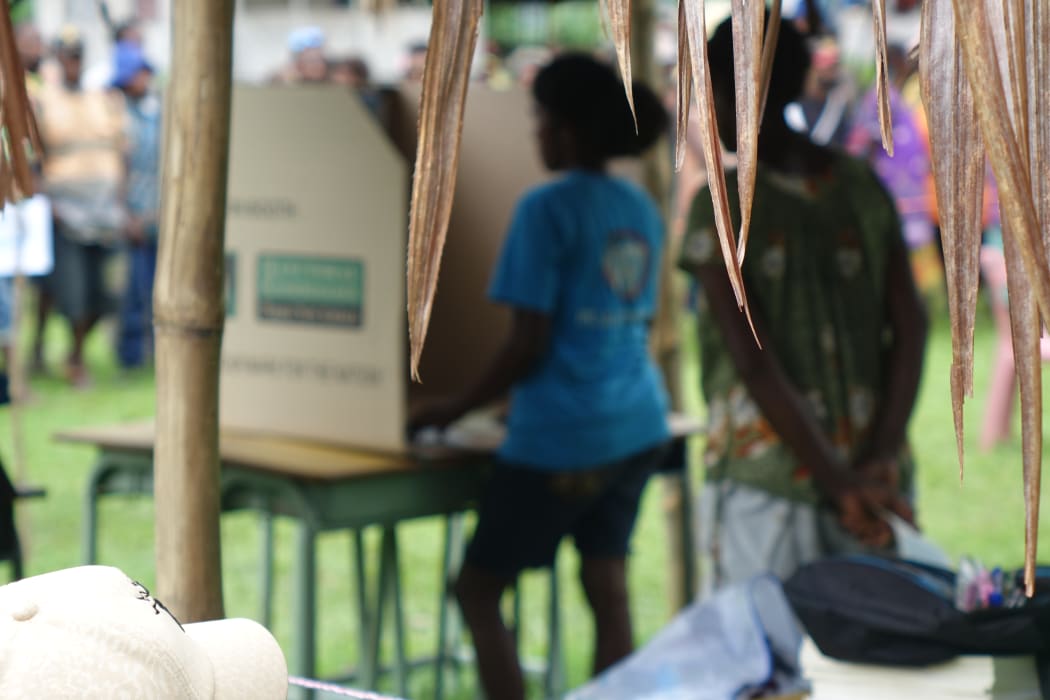
Despite a record number of female candidates in PNG's 2017 election, no women MPs were elected. Photo: RNZI/ Johnny Blades
Papua New Guinea
Papua New Guinea went to the polls for its five yearly election. It was a lengthy and troubled election fraught with flaws in the electoral process and deadly violence between supporters of rival candidates in the Highlands. Despite losing a significant number of MPs from his People's National Congress party during the polls, Peter O'Neill re-emerged as prime minister and underlined his dominance of the country's political scene. Neither corruption scandal nor PNG's bleak fiscal situation seems to hold him back. On the other hand, as the dust settled from the election, Mr O'Neill's leading political opponents either fell by the wayside (Don Polye was ousted from parliament) or decided to join forces with him (Sam Basil led the resurrected Pangu Pati to an impressive return on a platform of removing the O'Neill-led government but later defected to Mr O'Neill's coalition). Meanwhile, PNG's father of independence, Sir Michael Somare, retired from politics after a career spanning five decades.
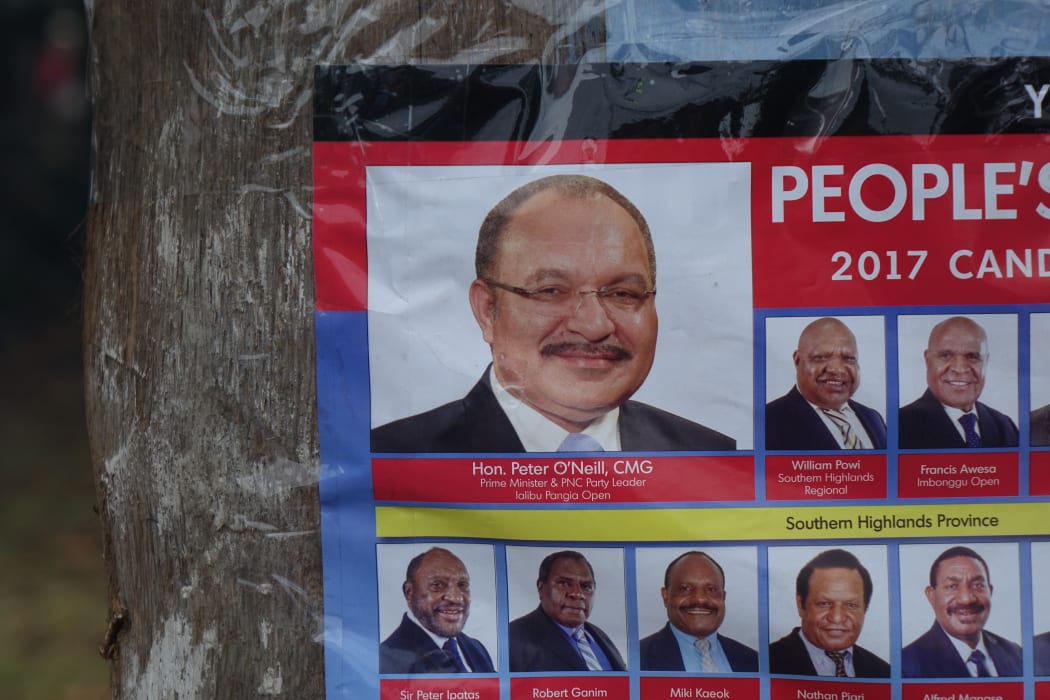
Election campaign poster for Papua New Guinea's People's National Congress Party, led by Peter O'Neill. Photo: RNZ / Johnny Blades
Bougainville
Bougainville has this year taken significant steps towards its vote on independence - the last step of the Bougainville Peace Agreement. The vote is set to happen in June 2019. It will then be considered by the PNG national parliament. This month both governments have agreed to have an internationally recognised person chair the Bougainville Referendum Commission. There was also agreement for the question in the 2019 referendum to elicit a simple yes or no answer. And the PNG government also committed to meet outstanding restoration and development grants and will pay a total US$132 million dollars to the Autonomous Bougainville Government. The agreement followed a difficult year for Moresby-Buka relations, with the slow payment of funds and Prime Minister Peter O'Neill's initial announcement that there was no guarantee the referendum would go ahead driving the ABG president, John Momis, to accuse PNG of undermining the autonomous region. These issues appear to have been resolved. Meanwhile after years of discussion and negotiation about a possible re-opening of the huge Panguna mine, the ABG has announced an indefinite moratorium on any exploration or mining there. This follows two companies vying to re-start the mine which was at the centre of the civil war and has been shut down for nearly 28 years. They are Bougainville Copper Ltd, which used to run the mine and in which the ABG has a significant shareholding, and Australian company RTG, which says it has established strong links with the landowning group at the Panguna mine site.
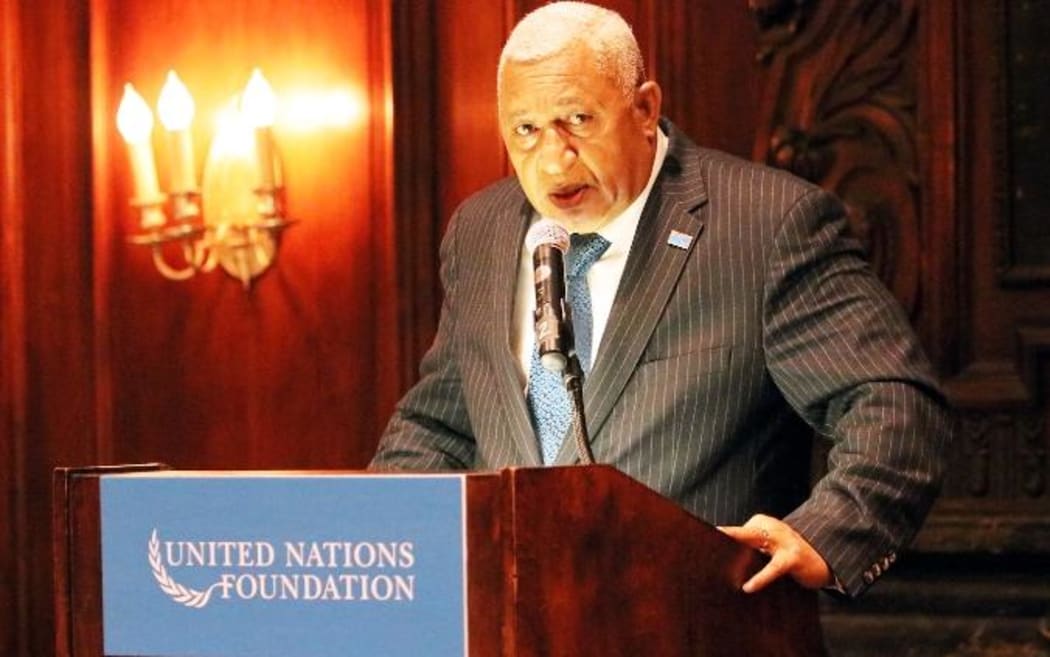
Frank Bainimarama speaks at the UN Foundations Dinner in New York. Photo: supplied
Fiji
Frank Bainimarama showed no sign of tiring of his role in charge of government, although there is plenty of evidence that he and his ruling Fiji First party are still learning that parliamentary politics is different from running a country's military forces. Much of the prime minister's energy in 2017 has been devoted to fronting the global campaign to fight climate change. He was in the thick of things as Fiji co-hosted the UN climate summit in Germany, earning some plaudits as a fierce advocate for Pacific interests, even if it was clear he hadn't really consulted much with people in his own country about it. Mr Bainimarama's deputy, Aiyaz Saiyed-Khaiyum, remains centrally involved with all the key decisions about how Fiji is ruled. Fiji First will fancy its chances of returning to power at next year's general election, but the opposition forces are steadily gaining momentum, despite MPs risking being charged with sedition for voicing dissent.
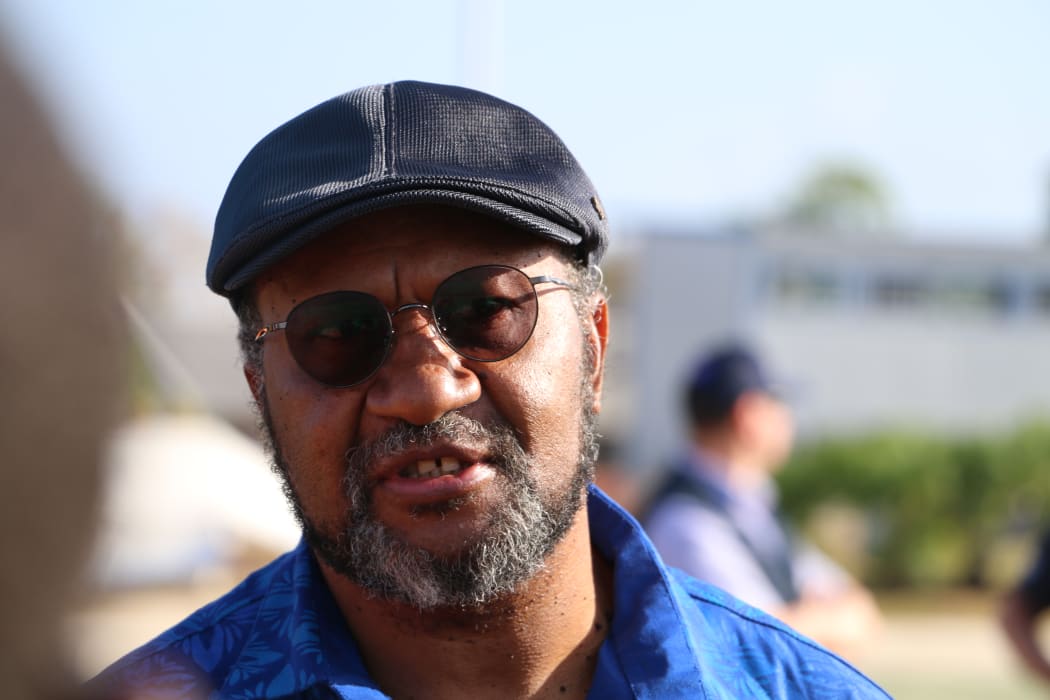
Vanuatu's Charlot Salwai. Photo: RNZ/Koroi Hawkins
Vanuatu
After sweeping to power in early 2016 after a crisis saw half the previous government jailed and parliament dissolved, the government of Prime Minister Charlot Salwai remains remarkably strong. Mr Salwai's coalition has held firm, soundly defeating two attempted motions of no confidence, the latest just this week. With a long stretch of nearly two years, Mr Salwai is now Vanuatu's longest-serving prime minister since the Ham Lini government of 2004-2008. His coalition is based around his own Reunification of Movements for Change party and the other two big parties, the Joe Natuman-led Vanua'aku Pati and the Graon mo Jastis Pati of the influential Ralph Regenvanu. The big test for the government will come in 2018 when it hopes to push through many of its promised reforms. This includes its tax policy, which has angered many in the business community and has been criticised by some as half-baked. The government, however, insists it's necessary to generate revenue. Other financial reforms include improving the country's reputation as a tax haven. The biggest of these are measures to counter the wanton motions of no confidence that have plagued politics for much of the 37 years since independence. Another test will be the deputy prime minister Joe Natuman, who will face the courts early next year for his role in an ongoing conspiracy trial.
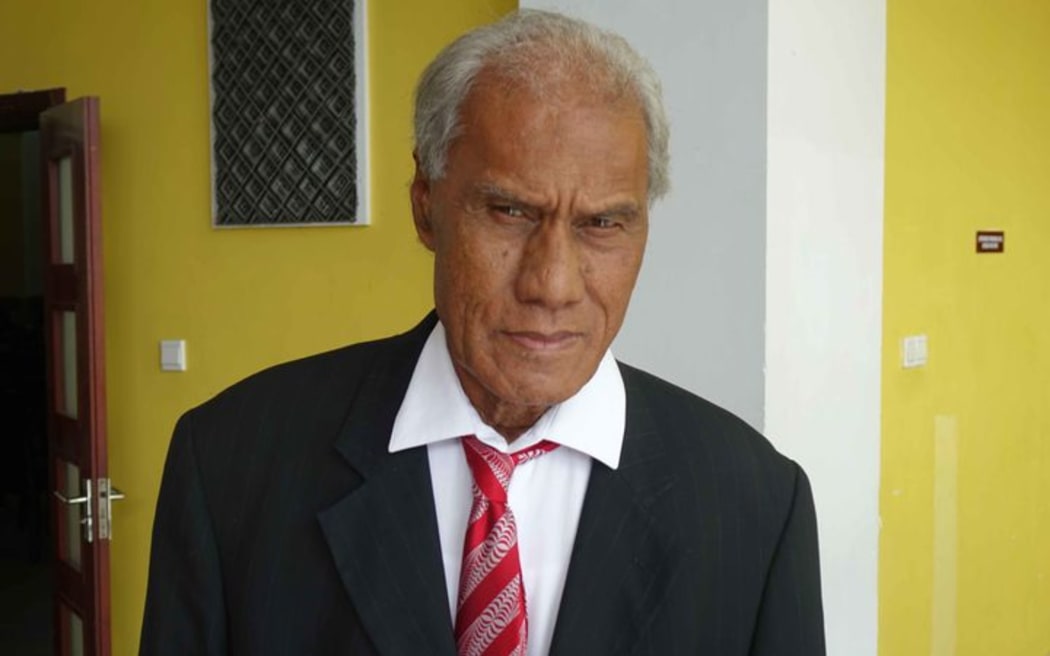
'Akilisi Pohiva Photo: RNZ / Koro Vaka'uta
Tonga
In August, King Tupou VI dissolved parliament in an historic first, over concerns the government of 'Akilisi Pohiva had been acting unconstitutionally by committing to international agreements without his consent. Another point of contention was that the government had also proposed that they gain the ability to appoint high ranking positions like the Police Commissioner and the Attorney-General, something that currently sits with the King and his Privy Council. The dissolution meant a snap election was called for November 16. Mr Pohiva's Democratic Party surged back into power, taking 14 of the 17 general seats, with Mr Pohiva himself being re-elected as Prime Minister by the 26 MPs. With an apparent electoral mandate, the new government has promised more of the same strategies and vision for the coming term. How will that go down in 2018?
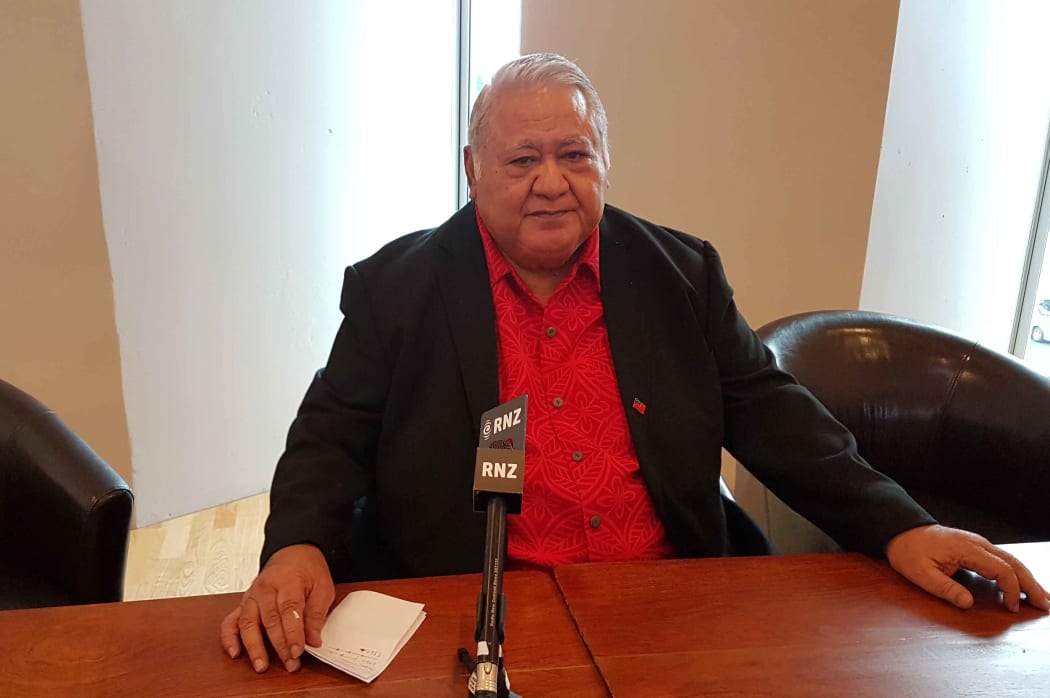
Samoa PM Tuilaepa Sailele Malielegaoi Photo: RNZ / Sela Jane Aholelei
Samoa
The longest serving prime minister in the region, Tuilaepa Sailele Malielegaoi, has had a torrid year with health issues and reports of an apparent conspiracy to displace him. In October, Tuilaepa was flown by air ambulance to New Zealand to receive medical treatment for undisclosed reasons. Earlier he'd been admitted into intensive care at the National Hospital in Apia. During his absence a former cabinet minister was accused of privately of orchestrating late night meetings with several Human Rights Protection Party members, supposedly to hatch a plan to take over the premiership. Tuilaepa later returned to Samoa and denied a rift in the HRPP, laughing off the matter. In the end, in a year where the 72 year old was appointed chair of the Pacific Islands Forum, fought off illness, dismissed questions about his leadership, and produced a memoir of his life, the veteran politician finished in as strong a position as ever.
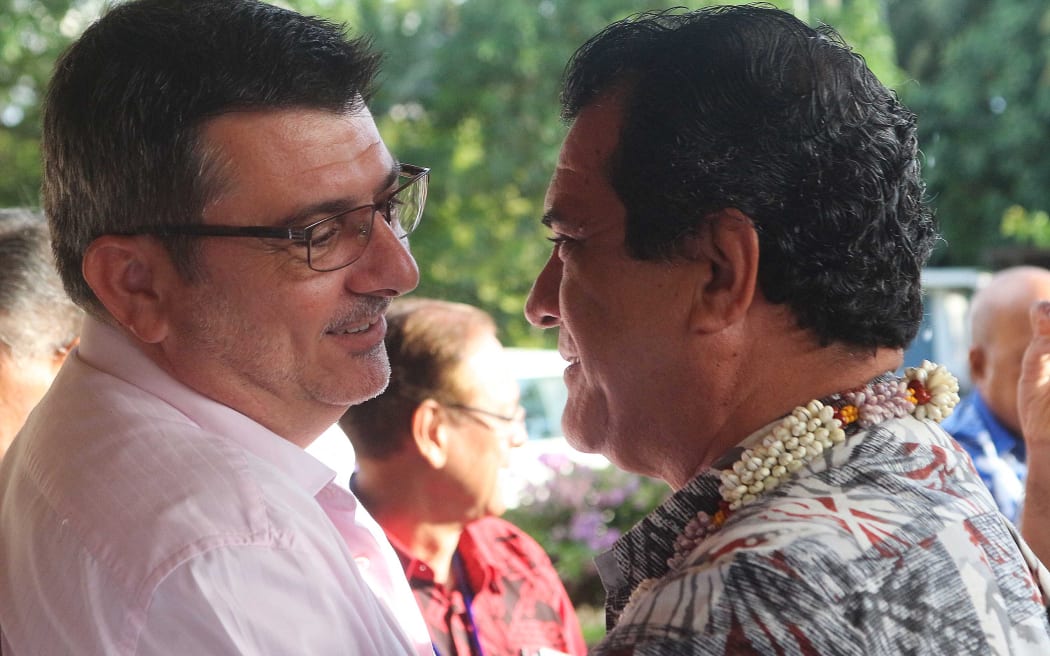
The president of New Caledonia, Philippe Germain, and the president of French Polynesia, Edouard Fritch, after their territories were admitted as full members of the Pacific Islands Forum. Photo: Office of the President of French Polynesia
New Caledonia
In New Caledonia, the road to an independence referendum has been anything but smooth. By the end of 2018, the territory is expected to have voted, ending a 30-year process of accords that have muddled the territory peacefully along since a period of conflict in the 1980s. France is overseeing the preparations, but the past year has been fraught with politics and divisions. A year out, there are a number of questions about who will be allowed to vote and the representation afforded to the indigenous Kanak population, about a quarter of whom are not registered. But there's also hardcore French nationalism, particularly in the urban areas. Divisions persisted in local politics in 2017, where the territory was without a president for two months, as pro-French groups couldn't agree to a nominee. Eventually, they agreed to the incumbent, Philippe Germain. All this while the territory's economy has been struggling with the plummeting nickel prices and a deteriorating security situation has worried many ahead of a crucial vote.
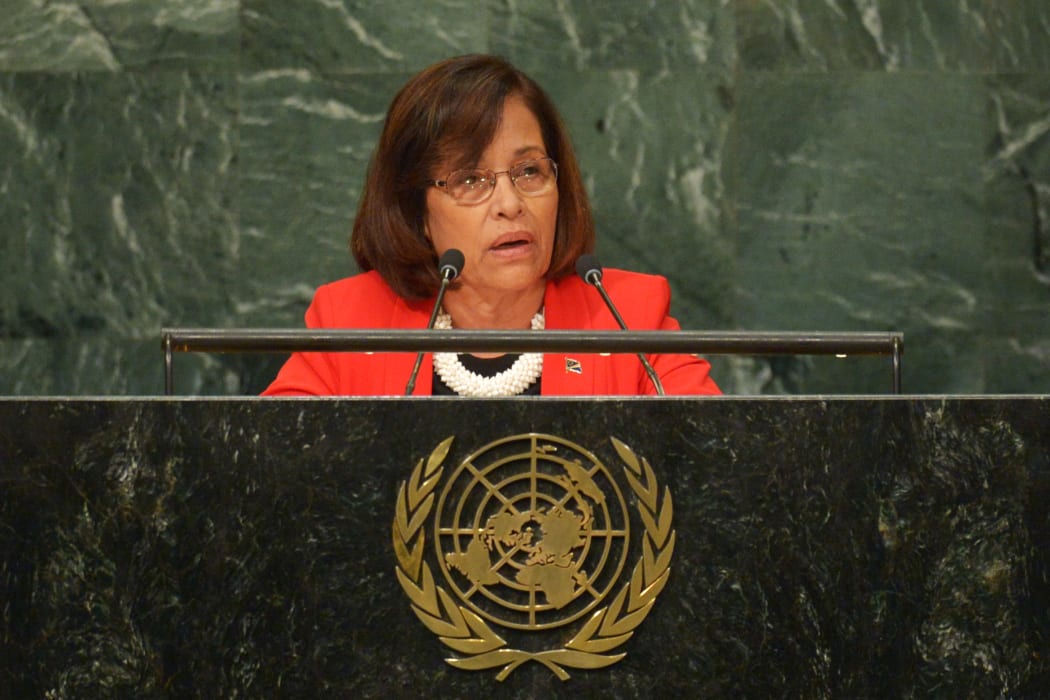
Hilda Heine, President of the Marshall Islands, addresses the 71st session of the United Nations General Assembly at the UN headquarters in New York on September 22, 2016. Photo: DOMINICK REUTER / AFP
Marshall Islands
Another Pacific country whose leader has been very active in international fora. Whether it be on climate change or human rights in West Papua, the Marshalls' president Hilda Heine has been a most visible leader for her country. At home, her country is still grappling with poverty, the impacts of climate change and the ongoing legacy of American nuclear weapons testing. On a sad note, two former Marshall Islands cabinet ministers died this year: Mattlan Zackhras and the indomitable Tony de Brum, who as the country's global ambassador for climate change and nuclear disarmament was considered a visionary and torchbearer for major Pacific causes.
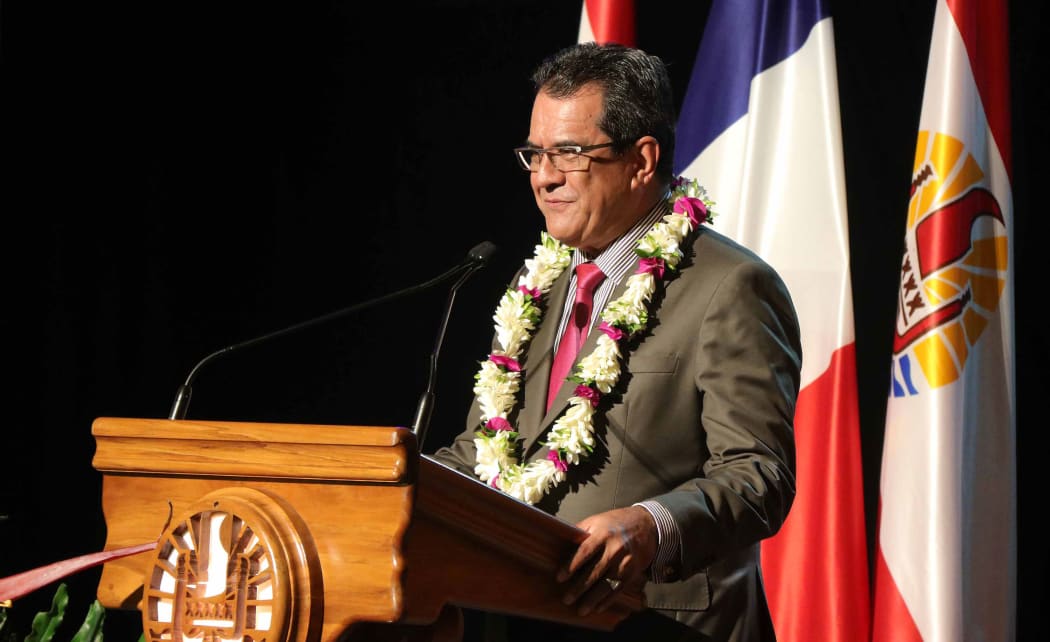
Edouard Fritch Photo: Supplied/ Présidence de la Polynésie française
French Polynesia
Since the Pacific Islands Forum's decision in 2016 to let France's two main Pacific territories take up full membership in the group, French Polynesia's president Edouard Fritch has become increasingly active in regional fora. But striving to integrate France into Pacific regional affairs is a different kettle of fish to turning around Tahiti's burgeoning domestic problems, such as unemployment, and shortcomings in education and health services. Mr Fritch has his own issues to contend with and is to be tried in the criminal court for alleged abuse of public funds, underlining how much he is following in the footsteps of his former mentor, Gaston Flosse, who despite being 86 and having a string of corruption convictions and allegations hanging over him, is seeking to return to the political fray and stand for next year's territorial election.
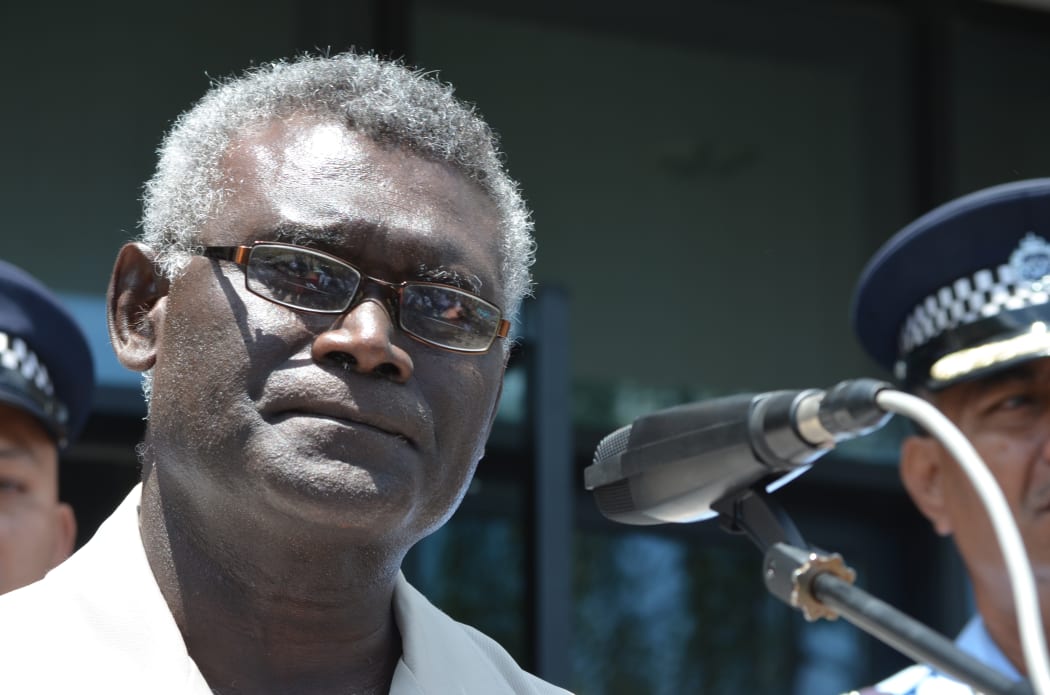
Manasseh Sogavare Photo: RNZI
Solomon Islands
After three years in charge, Manasseh Sogavare was ousted as prime minister of Solomon Islands in a no-confidence motion in November when members of his cabinet defected to the opposition. However, when it came time for the prime ministerial election, members of the opposition joined forces with Sogavare and the rump of his former administration to form a new government under Rick Hou, leaving the defectors in opposition. As deputy prime minister and finance minister, Mr Sogavare remains an influential figure ahead of next year's general election. Meanwhile, Mr Hou, who as former governor of the central bank brings a certain fiscal nous to the head of government, has promised to retore basic services to the outer islands. Meanwhile, after 14 years the Regional Assistance Mission, an Australia-led statebuilding mission deployed in 2003 when the country was near collapse, finally left this year.
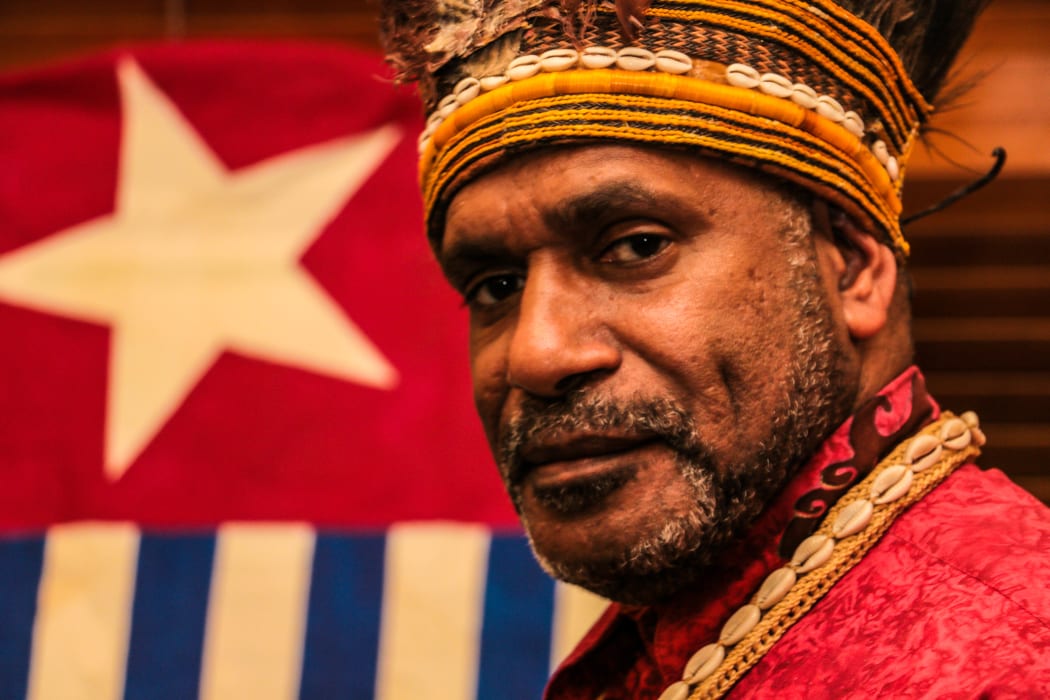
West Papuan independence leader Benny Wenda. Photo: RNZI/ Koroi Hawkins
West Papua
The internationalisation of the West Papuan self-determination struggle continued to gain traction at the United Nations level where several leaders of Pacific Islands countries, chiefly Solomon Islands' Manasseh Sogavare and Vanuatu's Charlot Salwai, raised concern about human rights abuses in Indonesia's Papua region. Pacific civil society also continued to play a leading role in West Papua advocacy. There was a change in the leadership of the United Liberation Movement for West Papua, the principle body advancing Papuan independence aims, with Benny Wenda elevated as the organisation's leader over Octo Mote. From Jakarta, Indonesia's President Joko Widodo continued to "invest more of his personal political capital in to progress" in West Papua, although his government's Pacific outreach didn't always go down well in the islands.
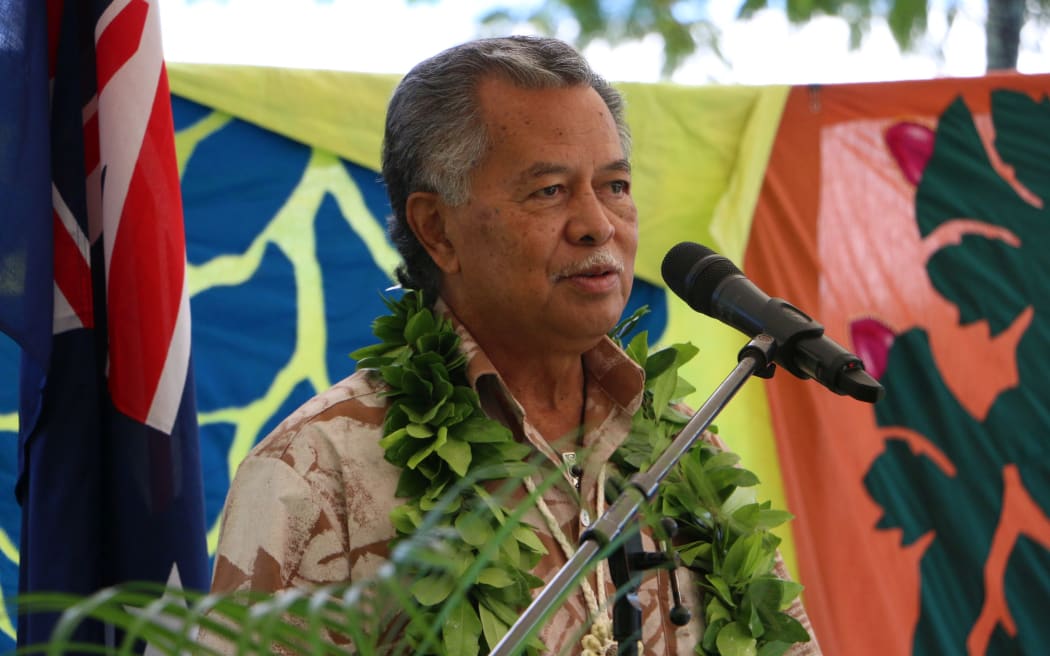
Cook Islands Prime Minister, Henry Puna. Photo: RNZ Pacific/Koroi Hawkins
Cook Islands
The urbane Cook Islands prime minister Henry Puna is entering his eighth years in charge and during most of that time he has had to work with a razor thin majority. He is helped by only rarely having parliament sit, but this year highlights included the formal establishment of the Marae Moana, one of the biggest marine sanctuaries in the world. At the same time the courts have dismissed opposition to a huge fisheries deal with the European Union. The Cooks have had to confront increased lawlessness this year, with violence and robbery becoming commonplace. The economy continues to fly on the back of soaring tourism, with visitor numbers expected to hit 160,000 this year, or more than ten times the population. There are concerns about the pressure on the infrastructure and calls for this to slow down but Mr Puna is not commenting.
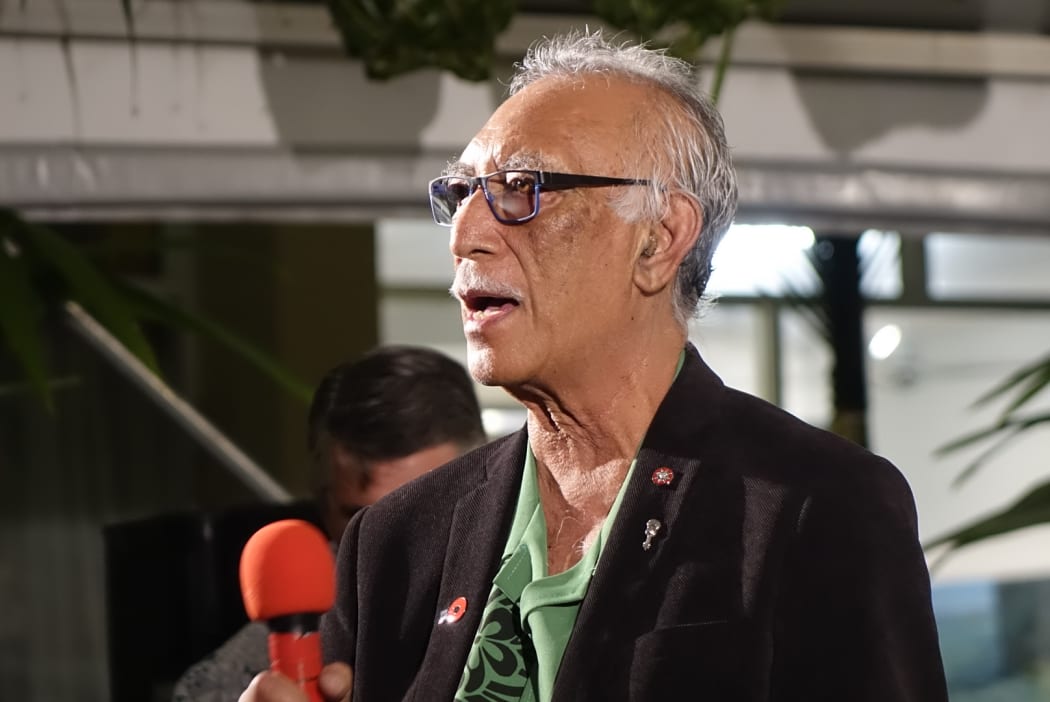
Niue Premier Sir Toke Talagi, speaking at the official opening ceremony of the island's 5th Arts and Cultural Festival 2017 Photo: RNZI Indira Stewart
Niue
Niue's Premier, Toke Talagi, had an eventful year. He was made a knight and received the honour from the New Zealand Governor General, Dame Patsy Reddy on the island. Soon after he won a record fourth consecutive term as the island's premier. He has managed to maintain strong political support with strategic pay rises to public servants and pension increases playing a part. But the island's tourism sector, built up with significant outlay by the New Zealand taxpayer, is continuing to flourish and for this Sir Toke can claim some credit. Sir Toke says his unfinished business included the push for Niue to have its own seat at the United Nations, something New Zealand continues to refuse to allow.
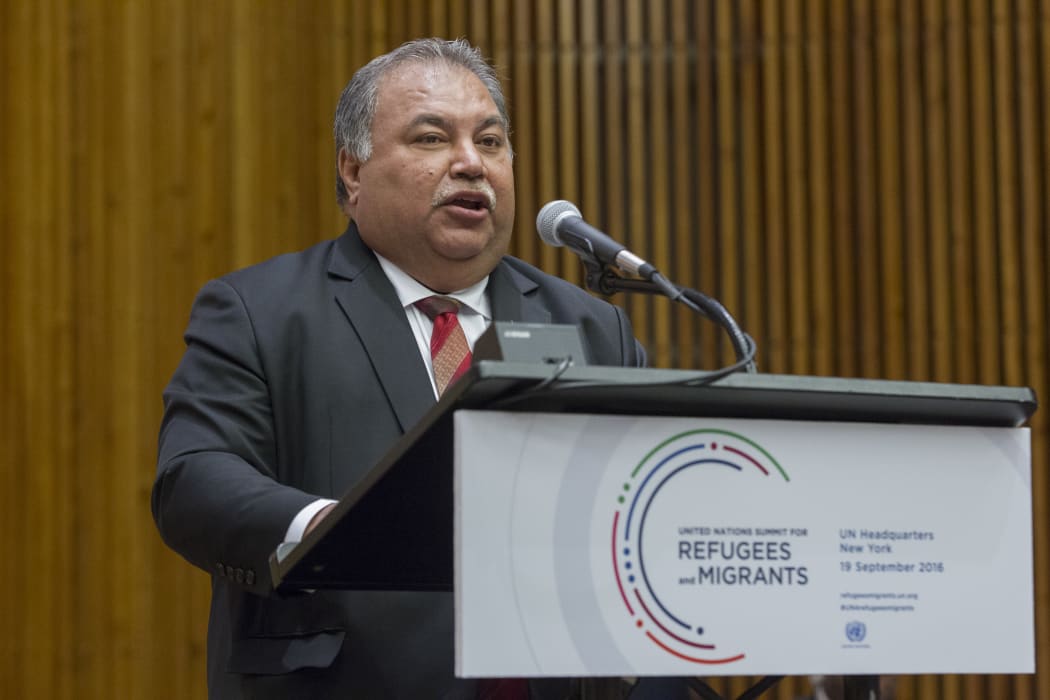
Baron Divavesi Waqa, President of the Republic of Nauru, addresses the United Nations high-level summit on large movements of refugees and migrants. Photo: UN Photo/JC McIlwaine
Nauru
The government of Nauru continued on its merry way enjoying the fruits of millions of dollars paid by Australia to house hundreds of asylum seekers and refugees. The government is still battling against several former MPs it has accused of rioting outside parliament more than two years ago. The 19 accused have strenuously denied the government's claim, saying a legitimate protest was held outside the parliament. This year the government removed its own lawyers and brought in an Australian firm, Ashurst, to fight the case. The situation for the refugees has been somewhat overshadowed by the grim plight of their fellow refugees on Manus Island in Papua New Guinea, but Nauru is angling to get some of the Manus people sent there now that that camp has been shut down. Nauru has expanded its airline to six aircraft. Before the influx of refugees it had one plane that could only fly with considerable aid assistance from Taiwan. It is looking to restore land left derelict after phosphate mining for residents to move onto and it is hoping it will get international aid to help this. The island is to host the Pacific Islands Forum summit next year but questions remain about access for journalists given that the government has effectively banned them for the past three years by charging a huge non-refundable visa application fee.
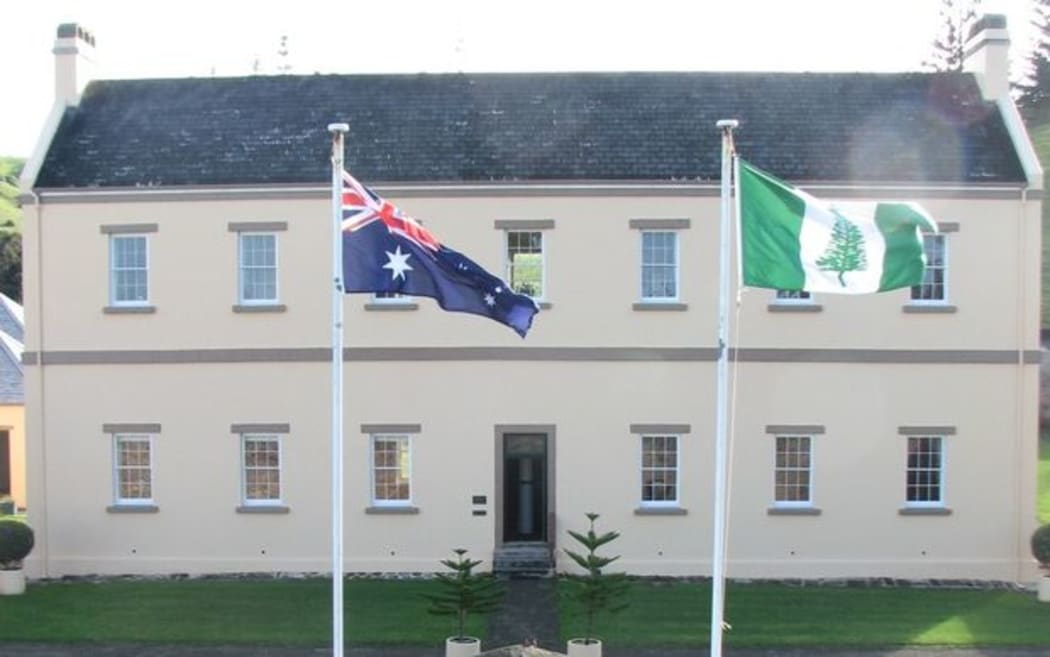
Photo: Norfolk Government
Norfolk Island
Eighteen months after Canberra took control of the island, asserting that Norfolk could not pay its way, ill-feeling remains. Efforts are still being made to take the issue to international fora with a significant number pushing for Norfolk to have its autonomy returned. But Australia has ignored the opposition and asserts that just a handful of families with links to the Bounty mutineers is driving the opposition and terrorising others into supporting them. There is little evidence of that and a tent protest that has been running since April last year remains in place in the grounds of the now unused legislative building. A recent economic assessment suggested the island is facing an economic crisis, while protests have been held over the imposition of land rates, the high costs of air transport and the importation of food stuffs from the Australian mainland.
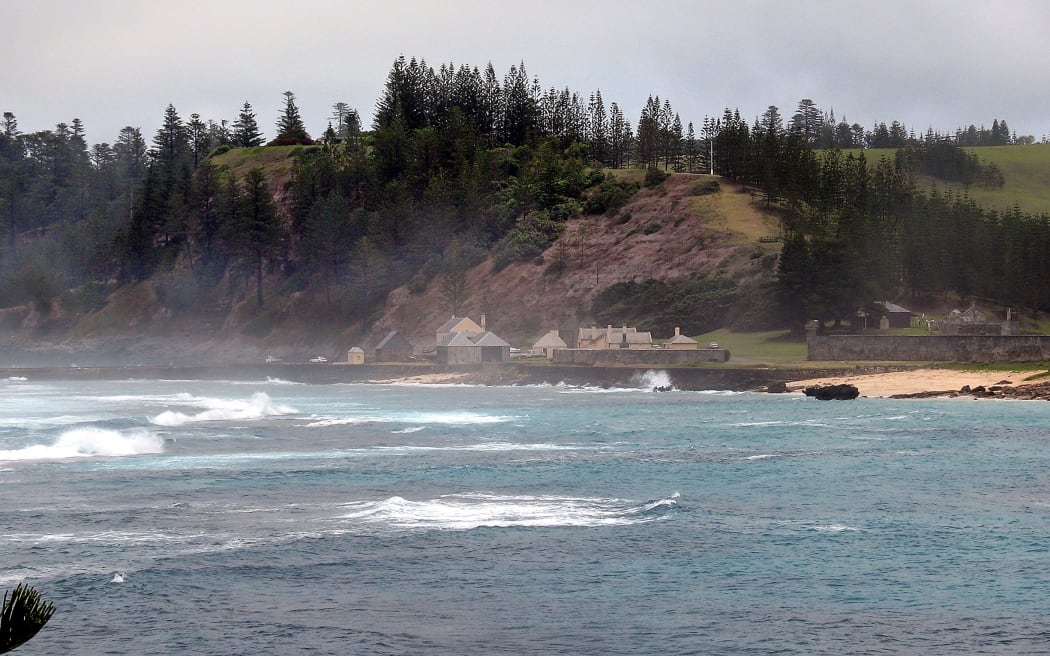
Norfolk Island Photo: AFP
Australia and New Zealand
Australia released its foreign policy white paper this year, with Canberra putting some of the strongest emphasis on the Pacific in recent memory. It acknowledged "new approaches will be necessary" in how it deals with the region, speaking of greater labour mobility, greater partnerships and the prospect of shared services. Australia remains the largest donor and most influential player, but it's also in a compromised position. The White Paper spoke a lot about climate change, but Pacific leaders have been quick to point out the hypocrisy of the world's largest coal exporter. Additionally, despite the best efforts of Foreign Minister Julie Bishop around the islands, Australia's reputation in the region has been impacted by its offshore processing of refugees. A change in tack is probably required, and, given Australia's political volatility, it may not be long before yet another change of prime minister. Now, who was that arc of instability that John Howard used to obsess about just a few short years ago?
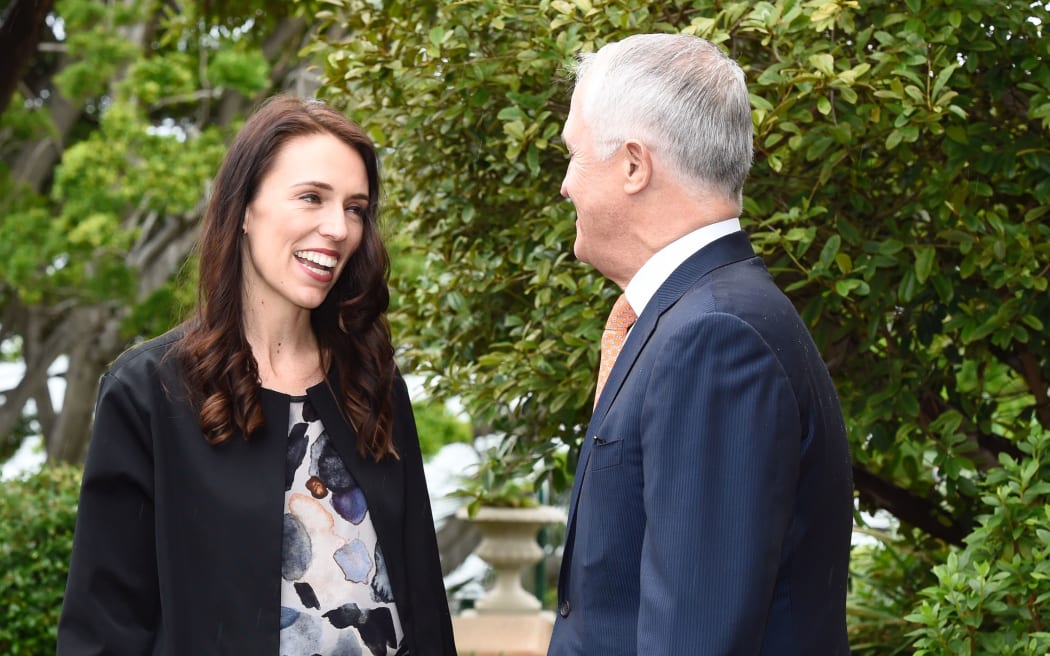
New Zealand prime minister Jacinda Ardern with Australian prime minister Malcolm Turnbull. Photo: Pool / Penny Bradfield
Across the Tasman, New Zealand's new government has promised a greater Pacific voice - both in New Zealand and the wider region, and as we move out of the McCully era, there are signs of possible changes to its controversial aid programme under new foreign minister Winston Peters. Wellington has tightened the strings on Tokelau, and continues to refuse the Cook Islands and Niue's quests for UN representation. This has drawn criticism from the islanders, and understandably, some resentment lingers. But New Zealand's relationships in the Pacific remain the key to its role as an independent voice in global affairs. That independent voice became rather muted in the past decade but the new prime minister Jacinda Ardern appears to have got off to a fairly proactive start, although it is still early days, particularly in how it will approach climate change. She has spoken about it being the "nuclear free movement of her generation" and already officials are looking at a climate refugee policy. Still, for the Pacific, the follow through will be critical. There is no doubt that there is a thirst for New Zealand to do more to advance the interests of its Pacific partners on the global stage.
Fiji remains a thorn for New Zealand and Australia, but the two metropolitan countries did score somewhat of a victory with the passing of the PACER Plus free trade agreement, albeit without the islands' two largest economies - PNG and Fiji. The growing presence of the likes of China, India, Russia, Japan, Taiwan and many others also keeps pan-regional affairs interesting. The region was united in outrage when the United States pulled out of the Paris climate agreement.
So, what will happen in the region in 2018? Stay tuned to RNZ Pacific to find out.

